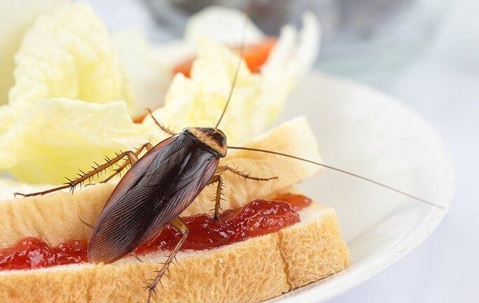The Trick To Effective American Cockroach Control In Dallas
They’re big, they’re bad, and they’re nasty. American cockroaches are the largest type of cockroach you can find infesting your property in the United States. While their smaller relatives pose their own particular problems, American cockroaches are highly resilient pests that can survive most attempts to eliminate them. So, if you’re trying to get rid of American cockroaches in Dallas, there’s a trick or two you should know.
What Are American Cockroaches?
American cockroaches are some of the most common pests in the United States, although it’s believed they originate from Africa. American cockroaches usually measure between 1 1/4 to 2 1/8 inches in length, making them a startling sight for homeowners. These roaches are reddish-brown in color with a distinct “figure 8” pattern on their back of their head. They have flat, oval-shaped bodies that help them to squeeze through tight spaces and horrifyingly, these big bugs are even equipped with wings, although they rarely fly.
There are a few telltale signs to watch out for that indicate an American cockroach infestation:
Live roaches: If you spot cockroaches skittering away when you flip on the lights in a dark room, they aren’t just visiting! Roaches spotted are roaches residing in your property.
Droppings: Often mistaken for mouse droppings, American cockroaches leave behind pellets where they feed and congregate.
Foul odor: When a cockroach infestation reaches a certain size, you might notice a musty odor developing.
Egg cases: American cockroaches lay their eggs in cases called “ootheca.” They appear as little brownish-red purses measure about 1/3 of an inch in length.
How Dangerous Are American Cockroaches?
Like rodents, cockroaches are likely to spread disease and contaminate the areas they infest. In the course of their daily scavenging, cockroaches find themselves in some disgusting places. Whether it’s in garbage dumpsters, toilets, or sewers, cockroaches will eat anything and hang out in some of the grossest places imaginable.
The pathogens American cockroaches pick up in these putrid locations can then be transmitted to food and surfaces around your property. Cockroaches are known to spread E. coli and salmonella bacteria and can also cause typhoid, dysentery, and cholera.
In cases of extreme infestation, American cockroaches can even cause allergies. Detritus like shed skin, droppings, and saliva can accumulate in the air in the form of microscopic particles. These particles can irritate skin, eyes, and lungs. It’s possible that some folks may develop eczema or asthma as a result of living or working in a building with a cockroach infestation.
How To Prevent American Cockroaches
American cockroaches are primarily attracted to food and moisture. Controlling these two factors can drastically reduce their presence on your property.
- Store food properly: Use a durable plastic, glass, or metal container to store any perishable pantry items and prevent cockroaches from crawling into open packaging.
- Clean up often: More than anything, maintaining a clean space is crucial. Wipe down the tables and counters where you eat and cook after use. Clean floors regularly to ensure no food waste is left behind. Don’t leave dishes in the sink overnight.
- Reduce moisture: Fix any leaking pipes or faucets to prevent excess water from accumulating. Ventilate humid spaces regularly by opening the windows or try installing a dehumidifier.
- Seal entrances: Seal up any cracks around doors, windows, or along your concrete foundation using silicone caulk. Replace old or faulty weather stripping as necessary.
American cockroaches are difficult to get rid of because they thrive in out-of-reach areas where you can’t properly treat them, and store-bought pesticides are often ineffective against American cockroaches. That’s why you need support from the professionals at Urbanex to eliminate your American cockroach infestation once and for all. Get in touch with us today.
Request Your Free Inspection
Complete the form below to schedule your no obligation inspection.

